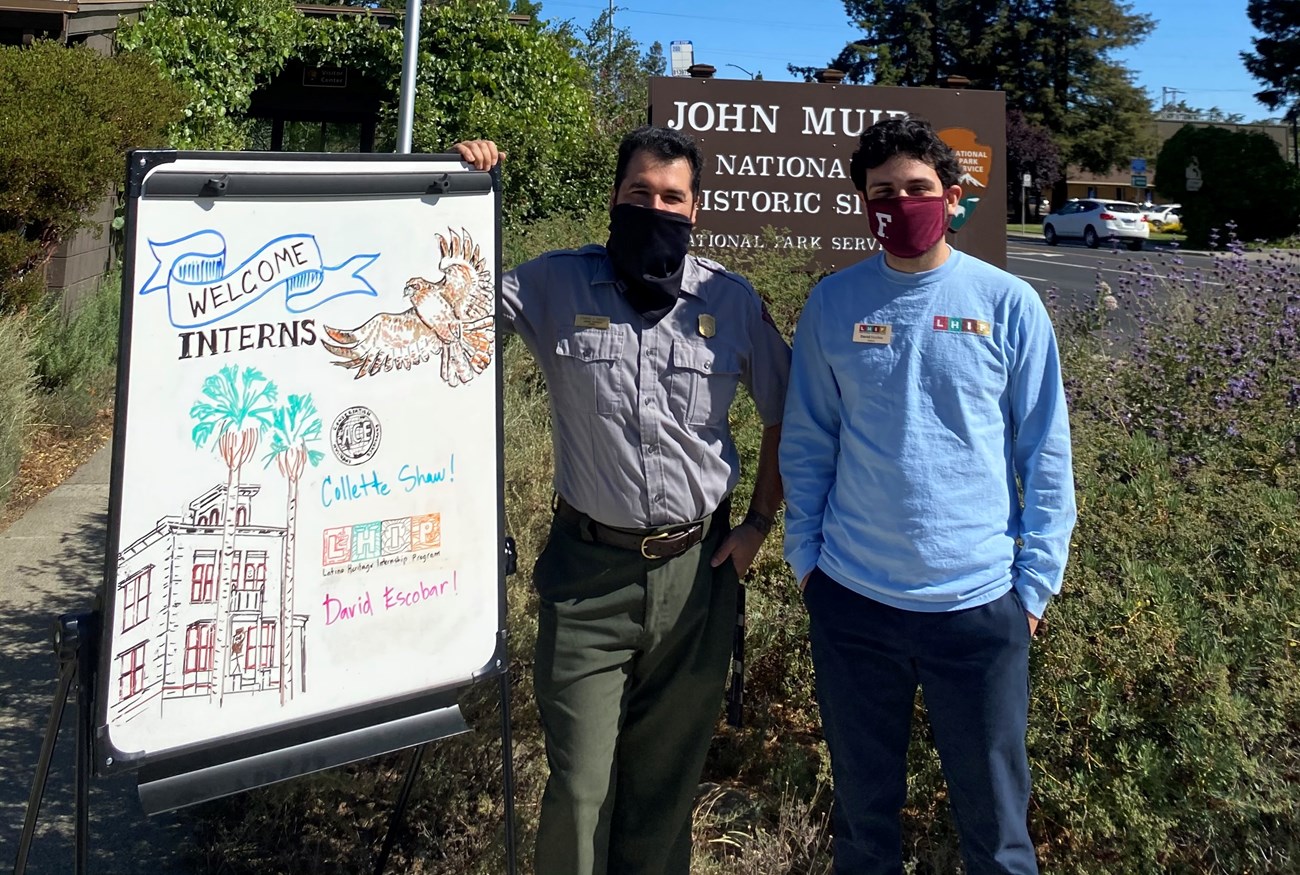Last updated: July 21, 2021
Article
From Intern to Mentor: A Latino Heritage Internship Program Intern's Conversation with an Alum

NPS Photo
By David Escobar, Latino Heritage Internship Program (LHIP) intern at John Muir National Historic Site, California
When I first started at John Muir National Historic Site, I quickly understood that my internship positioned me into a unique space within the park. Using my background not only as a Latino but also a journalism student, I began to critically analyze John Muir’s writing, looking for signs of bigotry and racism in his published literature. However, I hit a roadblock early in my internship that limited the work I was performing.
Even though I am part of a minority community, I did not feel that I could effectively evaluate John Muir’s attitudes toward people of color. Taking racist language used more than 100 years ago and using it out of context in my research seemed problematic, especially when trying to create an objective report based in fact. Besides the limitations presented by language, it is hard to effectively evaluate someone’s character off words alone.
When I relayed these feelings to my supervisors, we started to discuss what this would mean for my project. After an hour or so of discussion, it became clear that using fact-based research about John Muir to talk about his controversies would be the most productive way to engage with visitors. I made it clear that I wanted to focus more on the history of the local area as it related to John Muir, which turned into a brilliant idea for research.
Eduardo Chaidez, a former LHIP intern turned park guide at John Muir National Historic Site, suggested the idea of relating race and labor in John Muir’s life. I started researching the laborers at John Muir’s fruit ranch, most of whom were Chinese immigrants, which opened endless doors to new materials.
In my research, Eduardo has supported me with materials and gave me suggestions of places to look for information. As part of Latino Conservation Week, I thought it was important to highlight the relationship I’ve formed with a fellow Latino in the parks. Simply having someone besides me that understands my background as a Latino has been invaluable to my research. Eduardo and I have had conversations about race and labor relating to my research, and even when we are just around the office, we have formed an amazing bond as coworkers. I hope that in the future, I can provide someone else with the same support that Eduardo gave to me.
